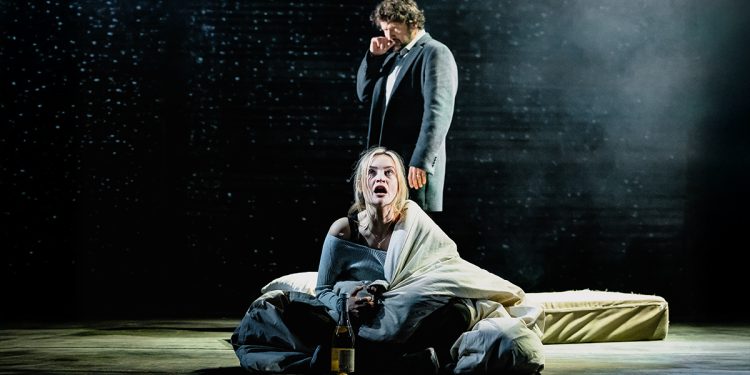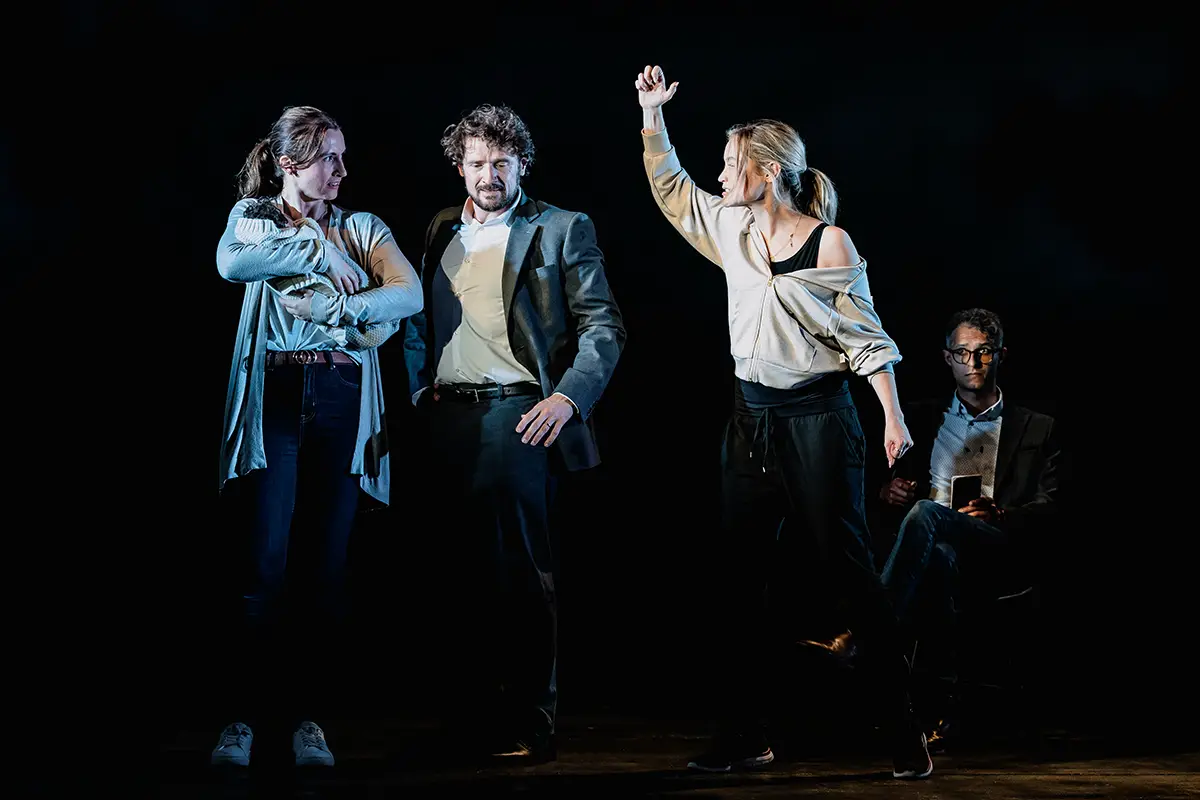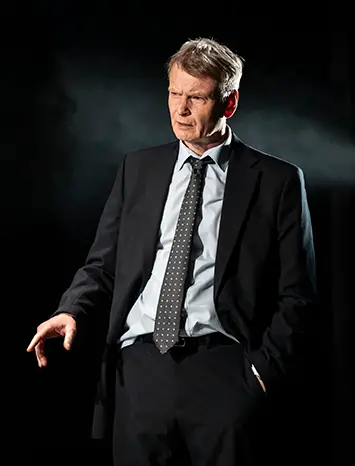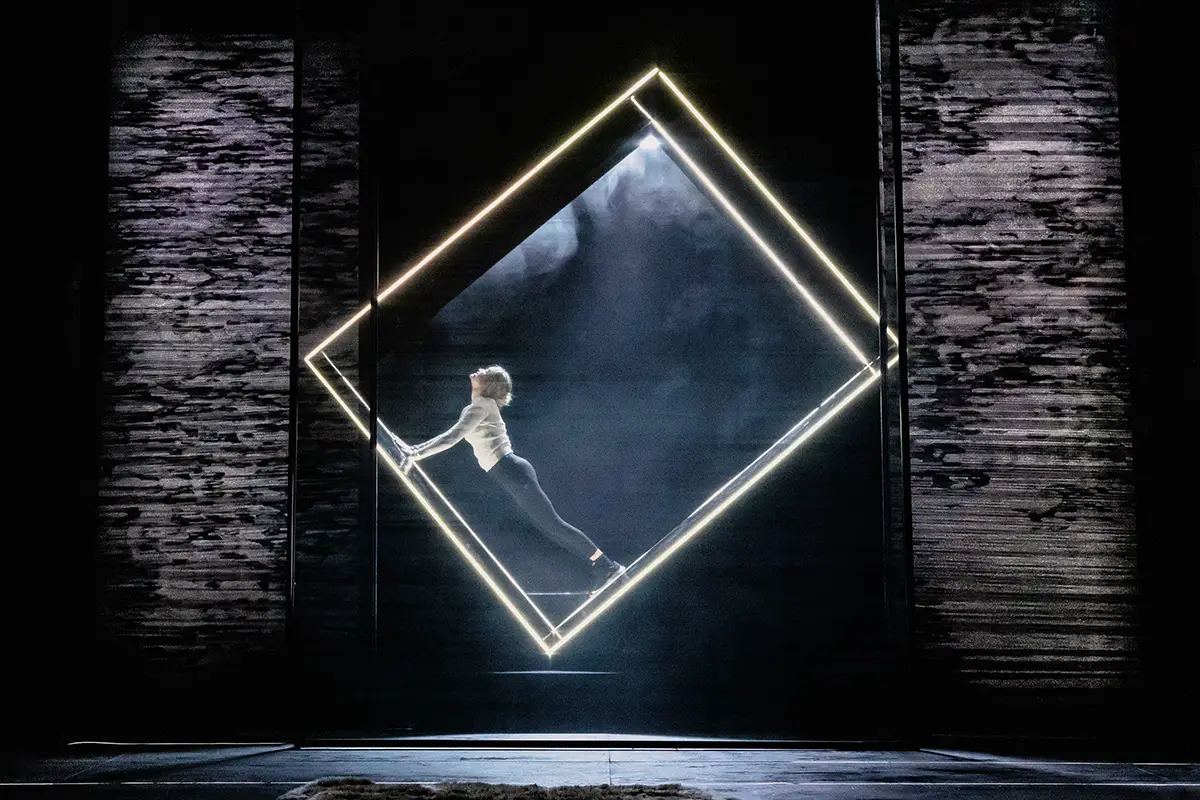The Girl On The Train – Review – Leeds Grand Theatre

By Steve Crabtree, July 2025
I’ll hold my hands up – The Girl on the Train isn’t a story I came to see with any prior knowledge. I’ve not read the book, and I’ve never seen the film. And to be honest, psychological thrillers aren’t really my genre of choice either. But when I saw this tour was heading to Leeds, something about it made me want to check it out.
Why? Maybe I just fancied something a little different…
At its heart, The Girl on the Train is a story of memory, obsession and fractured truth. Rachel, the central figure, is an alcoholic whose life has unravelled – her job gone, her marriage over, her confidence shattered. Each day she rides the train past the same rows of houses, imagining the lives of the people inside.
When a woman she’s watched from afar suddenly goes missing, Rachel finds herself pulled into the investigation, unsure of what she remembers and what she might have imagined. With timelines blurring and motives unclear, the story unfolds through a series of tense, tangled exchanges, as Rachel tries to piece together the gaps in her memory – and confront the reality of what she might have seen.

“Tension”
The first act dragged its heels a little. Maybe it’s just me – I’m more drawn to theatre that sets its pace early and keeps things moving. But in this case, the slower opening clearly served a purpose. It allowed space for questions to form, characters to simmer, and tension to quietly build. Ultimately, it paid off.
By contrast, the second act stepped things up nicely. The storyline found its groove, the dialogue picked up pace, and everything began shifting with greater urgency. The twists and revelations started coming more frequently, and that sense of being pulled along – unsure of who or what to believe – started to take hold.
My wife had already clocked the ending long before I did. But for me, there was a distinct turning point – a scene that gave just enough away to shift suspicion in a more focused direction. It wasn’t a “gasp out loud” moment – more a subtle nudge that made me re-evaluate everything I’d seen up to that point. And from there, I was hooked.

“Witty touches”
Laura Whitmore takes on the lead role of Rachel, and it’s a strong performance. There’s a fragility to her at first, but as Rachel gains clarity and strength, Whitmore builds that arc convincingly. She doesn’t overplay the emotional turmoil but lets it creep through scene by scene. She’s steady, and she holds the centre of the play with confidence.
Phil McEwan was a standout as DI Gaskill. There’s a warmth to his delivery and a natural ease in how he moves through scenes. He had a grounded presence that counterbalanced the chaos, and he managed to bring in moments of humour without ever pulling focus. That lightness was appreciated, too – subtle and well-placed, but never at the expense of the drama.
In fact, one of the things I enjoyed most about the production was how it used those quiet, witty touches to punctuate (or pop?) the tension. A few laughs from the audience was welcome. The writing gave just enough breathing space between the heavier beats, and the cast made the most of them. It helped keep the tone balanced and prevented the mood from becoming too heavy or self-serious.
The whole cast were solid throughout. We had no weak links, no jarring moments. A well-drilled group who kept things tight and focused from start to finish.

“Speed, rhythm and relentless routine”
Visually, the production does a great job of capturing atmosphere without overstating it. Clever use of lighting and sound effects evokes the motion of the train – its speed, rhythm and relentless routine – and helps place Rachel’s disoriented perspective front and centre.
The lights partnered the set design nicely. Subtle, with transitions seamless, and the layout allowing for quick shifts between homes, trains, and police interviews without breaking the pace.
And the ending? It landed well. Even if some had worked it out early, the payoff still carried weight. The tension had been built gradually and carefully, and the final act gave it the space it needed to play out without rushing or overdoing it. It was satisfying.
For a show that’s not in my usual area of interest, The Girl on the Train won me over. Once it found its rhythm, it kept me firmly onboard. If you’re planning to see it too, it’s well worth a night out.
The Girl On The Train runs at Leeds Grand Theatre until Saturday 5th July.










